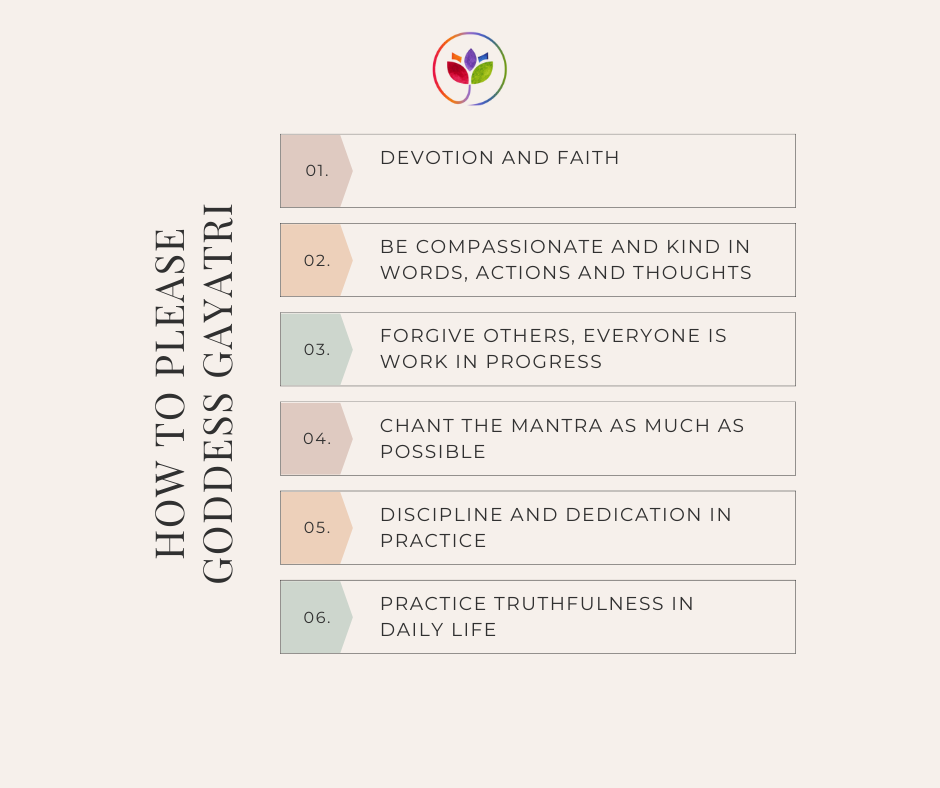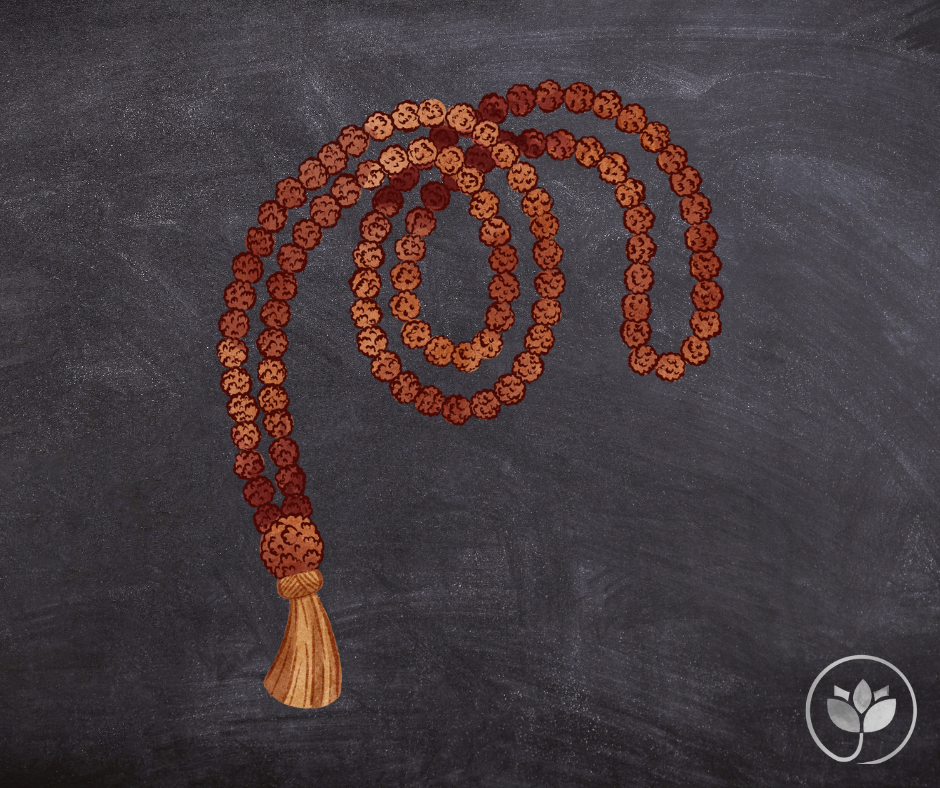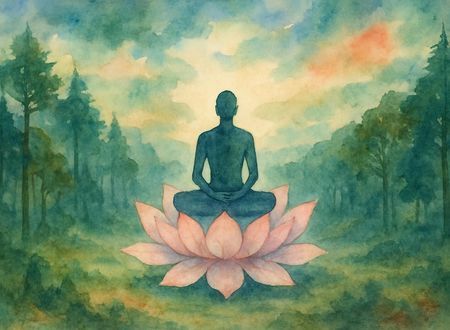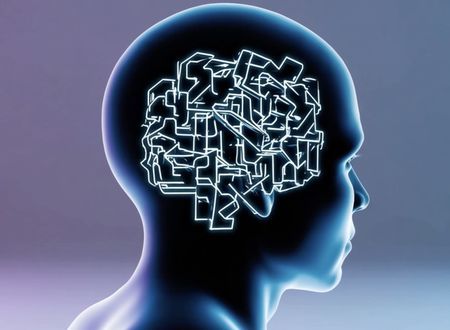Reciting the Gayatri Mantra can lend your life the power to transform your circumstances, including overcoming obstacles and rising above unfavorable situations.
A mantra is a tool for meditation, but it can also be used as a daily practice, especially when you need a little extra energy to get through something. The Gayatri Mantra has three traditional parts: a salutation to the sun, an auspicious blessing, and an expression of universal truth.
The Gayatri Mantra is considered to be a universal prayer that is said to promote spiritual growth and enlightenment. One common belief is that reciting it daily will help you achieve material progress. Using it as a mantra for meditation will bring personal transformation and success in all endeavors.
On mantra siddhi, Om Swami says, “Mantra yoga is taking the law of attraction to the next level. It’s experiencing samadhi in a way words can’t explain.”
He says, “Bhakti is first for a reason. It is the most important condition to succeed in mantra yoga. If you don’t believe in the existence of God or that God can have a form, then you would be better off practicing pure meditation and not bother with the sonic science of mantras.”
Importance of Gayatri mantra
As a listener, listening to music can make you cry, it can make you laugh, and so on. Similarly – and it’s just not a metaphor: it is very real – whether or not you know it, the sound of mantras can bring alive long-forgotten memories in you. Tendencies, feelings, emotions, knowledge, wisdom, powers, and siddhis you have been carrying within yourself over lifetimes can be evoked, invoked with the power of a mantra – The Hidden Power of Gayatri Mantra.
Gayatri Mantra, the most revered and sacred mantra of Hinduism, has tremendous power. Chanting of this mantra can improve one’s life, fulfill any desire, and succeed in any field of life. Gayatri Mantra is the mother of all mantras, and reciting it can give you multiple benefits. It is a potent mantra to get whatever you want in your life, whether it be wealth, health, a job, or love.
Gayatri Mantra in Rig Veda
Rig Veda is considered the oldest of the four Vedas. In Rig Veda Samhita, in the 61st Chapter, Mother Divine is referred to as Usha. Usha means dawn; Usha means daybreak, the first daylight.
Also read, who composed the Gayatri mantra?
Mother Divine is referred to as the light. But it is in the 3rd canto, 62nd chapter, and 10th verse where the Gayatri mantra is first featured in any scripture. Gayatri mantra is considered a seed of all Vedic mantras in the sense that on the path of mantra yoga, no mantra can be invoked until we first perform the invocation of Vedmata Gayatri.
Gayatri mantra is one of the four pillars of Sanatana Dharma.
It is also known as the “Veda mantra,” mother of the Vedas, and “mantra gyanam“. The Gayatri Mantra has been described as the heart of the Vedas. This verse is not only the most revered but also the most studied of all verses in Hindu texts. It is one of the most potent Vedic mantras.
The structure of the mantra is said to be Chatushpadi. Chatus means four, Padi means limbs which corresponds to four Vedas and four pauses in the mantra. The complete and recommended Gayatri mantra is
||om bhur bhuvah svah (pause)
tat savitur varenyam(pause)
bhargo devasya dhimahi (pause)
dhiyo yo nah prachodayat|| (pause)
“bhur bhuvah svah” is the three planes of existence, the three modes of material nature, and the three types of consciousness. Tat is that Savitur means something radiant; it is also the name of the sun; Varenyamis fit to be worshipped. Bhargo means radiant, Devasya is divine, Dhimahi is to meditate upon, Dhiyo means intellect, yo means which, Na means our, and Prachodayat means graced or blessed.
How many Gayatri mantras are there?
Gayatri mantra is a Vedic mantra that is meant for the worship of the sun God, Savitr. The word ‘Gayatri’ means ‘illuminating.’ It is believed that the Gayatri mantra has been derived from the same word, which means ‘rays of light.’
There are many forms of the Gayatri mantra. But one particular form is called Savitur Gayatri, which is derived from the word Savitri, the name of Mother Divine, radiant and effulgent.
According to a Hindu legend, the Gayatri mantra was first uttered by Lord Brahma, who created the universe. The Gayatri mantra is said to be the sound of creation, and of all the shlokas or verses of prayer, the Gayatri mantra is considered the most sacred.
The Gayatri mantra consists of three Sanskrit words, written from left to right: “Gayā,” “trī,” and “brahmān.” While each syllable has its own meaning, together, they express a message: “We meditate on that supreme light of godliness that illuminates all knowledge and all darkness.”
There are different methods for reciting the Gayatri mantra. Traditionally, one should recite it at least 108 times in a session. It’s also believed that when you recite this mantra with complete devotion and intensely concentrate on its meaning, it purifies your body and soul.
This powerful mantra has been used for centuries by Hindus as an aid toward enlightenment and better health. The practice of chanting is called mantra yoga. One can recite it while seated in a quiet place or walking around in a sacred circle (Pradakshina).
Why is the Gayatri mantra so powerful?
The Gayatri mantra takes you inward to tap into your spiritual wealth. It is believed that it is one mantra that is the essence of all Vedas that has the power to pull anyone out of any adversity, the congregation of sacred sounds, which could help one realize one’s wildest dreams. To tap into the power of Gayatri Mantra, a high quality and abundant chanting of this mantra with consistency and discipline are essential.
Gayatri Mantra is dedicated to which God?
The “Gayatri Mantra” is dedicated to the feminine force in creation, also known as Adi Shakti, meaning “The Primordial Force,” which is considered the mother of the entire creation. It is believed that she is not a goddess, but cosmic energy still present within every single fragment of your soul.
What are the benefits of reciting the Gayatri mantra?
The benefits of this powerful mantra are numerous and include:
A spiritual awakening
The Gayatri Mantra is known to awaken one’s inner light and expand one’s consciousness. It gives clarity, purity, and wisdom and helps us move closer to our higher self.
Healing
The Gayatri Mantra can be used as a healing tool, primarily when used in combination with other mantras such as Saraswati, Vishnu, or Lakshmi mantra. It has been said that chanting of this mantra leads to better health, peace of mind, and happiness.
How many times to chant the Gayatri mantra daily?
The Gayatri mantra can be recited any number of times. The number of times to recite the Gayatri mantra depends on the person and his needs.
Some people recite this mantra a few times daily, while some people chant it just once a day. The Gayatri mantra can be chanted anytime, anywhere, but it is best to chant it in the morning.
If you want the maximum benefit from recitation, you should start by reciting this mantra every day at least 108 times. If you cannot complete the number of mantras in one go, you can start with ten or even five mantras and gradually increase the number until you reach the complete 108 mantras daily.
How long does it take to recite the Gayatri mantra 108 times?
It takes around 20 minutes to chant the mantra 108 times. The answer depends on a few factors, such as the speed at which you can recite the mantra and the length of your recitation sessions. Chanting 108 times is not an easy task for most people, and it may take several months or even years for you to complete the entire process. It takes about 20 minutes to recite this powerful mantra once.
When should I start chanting the Gayatri mantra?
You can start your Gayatri Mantra chanting anytime during the day or night. Some people prefer to do it early morning or late at night to dedicate their time solely to this practice.
There is no wrong time for starting this powerful practice; however, if you are new to meditation or want to get started with daily meditation, try meditating at least once a day before trying out other meditation techniques like mantra chanting.
Can we chant the Gayatri mantra 11 times?
Reciting the Gayatri Mantra is one of the most common practices to achieve spiritual benefits. This powerful mantra can help you achieve enlightenment, peace, and prosperity in your life.
It is considered to be one of the most powerful mantras that can be recited for attaining wisdom and supreme knowledge.
You can recite this mantra in many ways, but the most common method includes reciting it 11 times a day. The mantra must be recited during sunrise, noon, or sunset, and a specific time frame should be followed so as to get maximum results from each chant.
How do I recite a mantra for its effectiveness?
Reciting mantras is an ancient practice. It is a way of invoking the energy within us and also connecting with the universal energy. Spiritual leaders have used mantras since immemorial to invoke a higher state of consciousness and connect with the divine. That is why it is essential to recite the mantra correctly.
For Gayatri Mantra to work effectively, you must recite it with devotion and sincerity. Here are some tips on how to recite the mantra for maximum benefit:
Consistency and Discipline
The best time to recite the Gayatri Mantra is early morning or late in the evening when there are no disturbances around you. You should also avoid reciting the mantra if you are angry, upset, or disturbed, as it will not work effectively under such circumstances.
Chanting With Devotion
Om Swami shares his experience and emphasizes that practicing the Gayatri mantra with utmost sincerity and devotion only can bring results. And he warns that one should not imagine the fruit as soon as he sows the seed, and accurate results are worth the wait. So, detach from the outcome and relinquish human tendencies such as greed, anger, and lust.
In the video, Om Swami also informs us to set the intention before reciting the mantra, whether for happiness, success, or enlightenment. Setting an intention helps us to meditate on the purpose and fulfill those intentions.
How to please goddess Gayatri?
The Gayatri Mantra is one of the most sacred mantras for Hindus. It is believed that if you recite this mantra daily, you will achieve many things in life.
So, if you want to know how to please goddess Gayatri, then here are some tips:

1. Recite the mantra as many times as possible. The more you recite it, the more powerful it becomes.
2. Respect and be kind to all sentient beings around you. Non-violence and compassion are non negotiable factors of Devi mantra Sadhana.
3. Recite it with total concentration and dedication to achieve the desired results.
4. Practice truthfulness in daily life.
Keep on reciting this mantra even if you don’t see any change happening in your life at first glance because it takes time for its effects to show up. When they show up, they have a long-lasting impact on your life and bring about an irreversible transformation!
os.me community Q&A on the power of Gayatri Mantra
Read the os.me community Q&A on the power of Gayatri Mantra. Learn more and contribute by sharing your experiences.
I have a question regarding the correct way to pronounce one of the words in the Gayatri mantra. It's the word Svah in Bhur Bhuva Svah.
This is where I see so many different interpretations of that word. Different spiritual lineages seem to pronounce that word differently. I have come across the following versions and that too by various very prominent gurus and teachers.
- Suva
- Suva
- Svah
- Svaha (I think this is how Swamiji pronounces it, pls correct if I’m wrong)
- Svaahaa
I’ve read in some forums that different spiritual lineages have their own way of pronouncing certain words in the mantra. However, since mantras are energized sounds, is it correct to have variations in the pronunciations? What do you people think? What is the right way to pronounce that word acc to you? Thanks! Read the answers or ask a question.
What are the non-negotiable rules for Gayatri Sadhana?
Jai Shri Hari,
I want to know the non-negotiable rules for grihastha for 40 days of Gayatri Sadhana & on which day one should start the sadhana??
Thank you. Read the answers or ask a question.
Is the Gayatri mantra only specific to Devi, or can we chant it with any form of the divine in mind?
So, I was wondering if the Gayatri Mantra should be done while thinking of Devi only, or it could be done with the one supreme conscious or my Isht dev in mind? I read Swami Ji’s book about doing Purushcharna. Still, I was wondering if I could do a Gayatri Purushcharna for my Isht Dev (Shiva) reciting the Savitur Gayatri but for Shiva, which is already in my current practice, instead of changing to a different form of the divine. Read the answers or ask a question.
Can we chant the Gayatri mantra when someone dies or is born in the family?
Can we recite the Gayatri mantra when someone dies or is born into the family? Read the answers or ask a question.
Does the Gayatri mantra chanting generate negative emotions in you?
It’s said that the Gayatri mantra recitation can generate joy and happiness in you. But could it possibly generate negative emotions in you too? Let’s find out.
How many times to chant a mantra while doing Gayatri Sadhana?
Hello,
I tried practicing Gayatri Sadhana many years ago based on Swamiji’s book. I experienced a deep state of dullness back then and had to stop.
I’ve done multiple 40 days of Anushthan with the Sri Hari mantra “Om Namo Bhagvate Vasudev,” That never affected me negatively but always had a positive effect on me.
I am trying to recite the Gayatri mantra before going to bed using the Sadhana app, which creates a feeling of fear and hopelessness in me. Every time I have tried practicing the Gayatri mantra, it has affected me negatively.
Am I doing something wrong in my practice? Have you experienced something like this? Were you able to correct it? Read the answers or ask a question.
How to correctly do mental Japa?
I recently started doing Japa after meditation. I have read Swami Ji’s book on mantra sadhana and doing mental Japa, but here are some questions regarding mantra recitation on chakras.
- Every mantra letter is associated with a particular chakra, so while pronouncing/visualizing that letter, do we take our concentration on that specific chakra?
- Even if I am doing mental Japa, my breath is getting in sync with the mantra, i.e., a person sitting next to me could easily make out which mantra I am meditating on. So is it incorrect practice?
- I would appreciate any suggestion you might have for me. Thank you. Read the answers or ask a question.









Comments & Discussion
2 COMMENTS
Please login to read members' comments and participate in the discussion.